"This above all: To thine own self be true,
and it must follow, as the night the day,
thou canst not then be false to any man."
~~~~~~~~~~~~~~~~~~~~~~~~~~~~~~~~~~~~~~~~~~~~~~~~~~
From Shakespeare's play "Hamlet", Polonious bidding farewell and giving advice to his son Laertes, who is about to travel abroad to France. He tells him to lay low, stay quiet, (listen more than talk), not draw too much attention to himself, dress conservatively (don't try to outdo the French when it comes to couture!), be careful choosing new friends, stick with tried and true friends, don't borrow money or overspend. Just be yourself. Farewell, you have my blessing:
Yet here, Laertes! Aboard, aboard for shame!
The wind sits in the shoulder of your sail,
And you are stay'd for.
There ... my blessing with thee!
And these few precepts in thy memory
Look thou character. Give thy thoughts no tongue,
Nor any unproportion'd thought his act.
Be thou familiar, but by no means vulgar.
Those friends thou hast, and their adoption tried,
Grapple them to thy soul with hoops of steel;
But do not dull thy palm with entertainment
Of each new-hatch'd, unfledg’d comrade. Beware
Of entrance to a quarrel but, being in,
Bear't that th' opposed may beware of thee.
Give every man thy ear, but few thy voice;
Take each man's censure, but reserve thy judgement.
Costly thy habit as thy purse can buy,
But not express'd in fancy; rich, not gaudy;
For the apparel oft proclaims the man;
And they in France of the best rank and station
Are of a most select and generous chief in that.
Neither a borrower, nor a lender be;
For loan oft loses both itself and friend,
And borrowing dulls the edge of husbandry.
This above all: to thine own self be true,
And it must follow, as the night the day,
Thou canst not then be false to any man.
Farewell; my blessing season this in thee!
-- William Shakespeare
Farewell Honna! My heart will follow you to India.
skip to main |
skip to sidebar





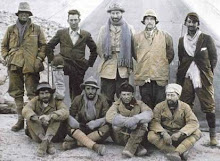
Mallory and Irvine top left

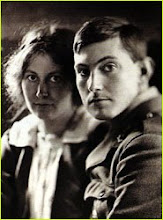
George Mallory 1886-1924



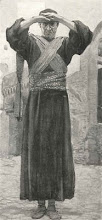
James Tissot: Prophet Ezekiel

Dream come true: Best ebay purchase this year...My beautiful lamb cake from my 100 year old Griswold lamb cake mold

Rembrandt von Rijn 1638

Body of Christ being prepared for the tomb



This is what we experienced, unexpectedly, at Lamayuru: a celebration to welcome a very high-ranking monk visiting the monastery. I was so dumbstruck I couldn't even take photos, but I found these online taken by someone who was also there, Raum Feur


- Feur

- Feur. I remember seeing this woman but wasn't brave enough to photograph

- Feur

Good luck with Georgie Porgie today!

"Fresh from their morning puja, or prayer session, these novice monks are captivated by a scene during the annual festival at the remote Lamayuru monastery, the oldest Tibetan Buddhist institution in Ladakh in northern India"

My lifelong dream, to go to a place like this- and then I did go, to this exact place, as if by magic!

Honna's tools of trade


The crowds joyfully wave palms and lovingly welcome Jesus to Jerusalem in triumph. In the days to come the tide will turn and these same crowds will want Him dead.


totally by accident, on his way to India, after other explorers had already discovered America, let's say Leif Erikson or Henry Sinclair and The Westford Knight, (remember the mid-1400's corn carvings in Rosslyn Chapel in Scotland) yet we still celebrate Bumbling Columbus 500+ years later?
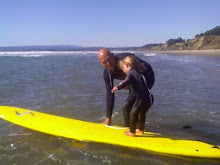
surfing with her grandfather in Santa Cruz

Decorus and sedate in comparison to the way people are feeling these days

Here we go again



tree as monolith



Take note that Kissinger is averting his eyes to Ms. Palin's attempt at a Sharon Stone fatal attraction





How strange is this 2004 cover?!


I cannot believe I never read Three Cups of Tea before this week! It takes place about 100 miles from where we were a few weeks ago, I could have learned so much by reading it beforehand. But better late than never!

I snapped this photo on the Leh-Kargil road, just in time to capture his fading face forever



still pure





Leh is a little Lhasa


Can you imagine?


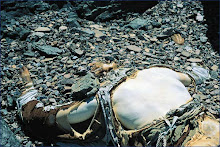
Mallory as he was found, resting in peace 1999

Beautiful setting for ten days of silence and no eye contact, in the Himalayan foothills

Honna begins Vipassana here today, July 5th

No you don't, you just think you do

Congress Hall



@ Brad Carlile

@ Brad Carlile

@ Brad Carlile




considered to be the first large scale modern art, painted 1919

eighty million spent today for Monet

Leonardo da Vinci and the Euro, and a slight hint of Pranic Healing?


from Honna in India- one of many

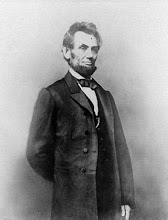






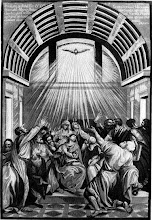







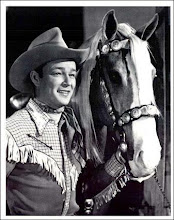







Hard to believe I took this myself, in the wilds of Africa, with my pocket Panasonic, from the safety of a Jeep.
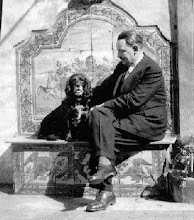

Op Ed Columnist New York Times, wrote the very funny piece about how "memory is the new sex" and how Boomer environmentalists will soon start saying hopefully that we are "reducing our mental footprint"

my kids, their mates, my granddaughter, and me


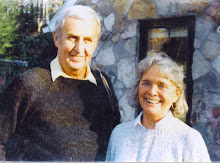
They were such youthful, fun and generous grandparents for my kids and my sister's kids!

born August 8 1922

born April 10, 1922 Happy Birthday!

Ava's India
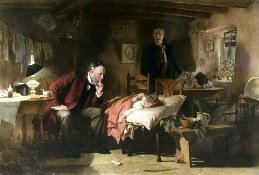
by Sir Samuel Luke Fildes
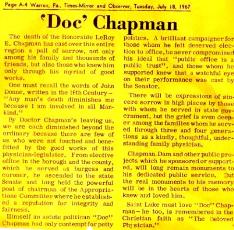
editorial upon my grandfather's passing
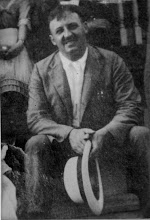
around 1910
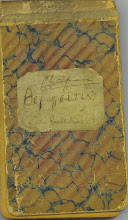

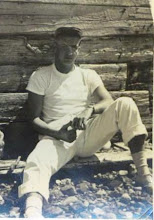
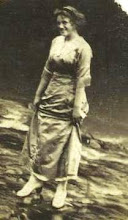
my mom's mom
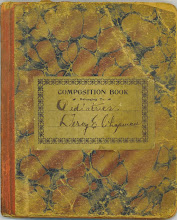
Pediatrics

Our hosts provide gently and well- notice the little yellow soap on top of the round "soapdish" on the far right



Better than nothing!
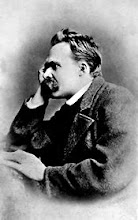





Fresh in from hunting and swilling whiskey with the guys? Bet those hard working fellows loved having HER along!

fanciful!

Apprentice Pillar

mysterious carvings at Rosslyn Chapel

15th century carvings predate knowledge of corn in Europe



Claude Monet 1886




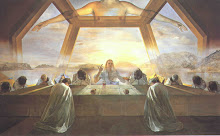
This painting fascinated me for years after I first saw it in the National Gallery in Washington. It made me think that maybe Dali was sane after all. You have to see it for yourself to appreciate the beauty of it, and especially the beauty of the lustrous satin robes.


Mary Queen of Scots


my little collage

May be Different from the Others

Jesus Blessing the Children

When I was in third grade my grandmother gave me this as an oil paint-by-numbers kit and I was so proud when it was done! (Whatever happened to those really good paint-by-number kits?)

Giotto's "The Kiss of Judas" from the Scrovegni Chapel

Jesus to Peter: "Before the cock crows you will deny me three times"

Werner Sallman's famous old portrait comforted many

Palm Sunday Cross
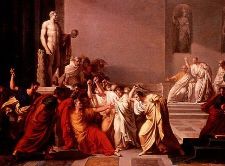
Et tu Brute? Assassination of Caesar on the Roman senate floor by senators including his once dear friend Brutus, March 15, 44BC.(painting by Vincenzo Camuccini)

This weekend Chinese authorities are using tanks, tear gas and guns to maim and kill Tibetan monks and citizens who are protesting the Chinese occupation and desecration of their homeland

Scrovegni


taken from the back of a sweet man at the Polka Dot Ball


once while living in Mexico in the sixties I nearly got The Virgin of Guadalupe tattooed on my hip but chickened out after the first poke of the pen, wondering "What would my mother think?"

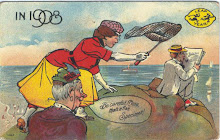
Go Get Your Man!

Hillary as Lorena Bobbitt, Cruella Deville and Dr. Strangelove




Board member Manhattan Institute







Home sweet home

Steve Fossett

The three lions- Mambo Brothers -return triumphantly

Taken with my little point and shoot camera!


Sweet Valentine
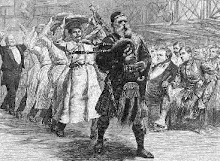
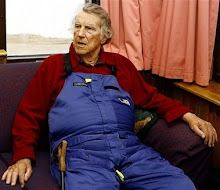
SIr Edmund Hillary at 87, Antarctica 2007

Hillary at home 2003
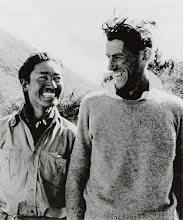
SIr Edmund and Tenzing Norgay

love my Soloflex and that Whole Body Vibration

This work is licensed under a Creative Commons Attribution-Noncommercial-No Derivative Works 3.0 United States License.
When shall we all meet again? In thunder, lightning, or in rain? When the hurlyburly's done, when the battle's lost and won.

About Me

- terryl lee chapman
- The photo of me is taken in Ladakh India by my daughter in 2008, as we were walking along a village street with an open drain.
"uncontacted" Indians in Brazil

"uncontacted"

"uncontacted"

In cotton and wool on Everest 1924

Mallory and Irvine top left
George Mallory nametags

George Mallory and wife Ruth

George Mallory 1886-1924
Andrew Irvine, Mallory's equally doomed partner on the climb

Grandma Peggy

something comfy


James Tissot: Prophet Ezekiel
My beautiful lamb cake from my 100 year old Griswold lamb cake mold
Dream come true: Best ebay purchase this year...My beautiful lamb cake from my 100 year old Griswold lamb cake mold
The Risen Christ Appears to Mary Magdalene at the Tomb

Rembrandt von Rijn 1638
The Entombment

Body of Christ being prepared for the tomb
Ode to a Moth

Lamayuru from a distance

Lamayuru Monastery celebration

This is what we experienced, unexpectedly, at Lamayuru: a celebration to welcome a very high-ranking monk visiting the monastery. I was so dumbstruck I couldn't even take photos, but I found these online taken by someone who was also there, Raum Feur
Lamayuru

Lamayuru man

- Feur
Lamayuru woman

- Feur. I remember seeing this woman but wasn't brave enough to photograph
Lamayuru woman

- Feur
The coolness factor: people say that Barack could pass as one of his own Secret Service men

Good luck with Georgie Porgie today!
young monks

"Fresh from their morning puja, or prayer session, these novice monks are captivated by a scene during the annual festival at the remote Lamayuru monastery, the oldest Tibetan Buddhist institution in Ladakh in northern India"
Lamayuru Monastery: postcard from the fridge

My lifelong dream, to go to a place like this- and then I did go, to this exact place, as if by magic!
Kimberly McDonald earrings

Honna's tools of trade
Velveteen Rabbits for Obama!

Palm Sunday, Jesus Enters Jerusalem in Triumph

The crowds joyfully wave palms and lovingly welcome Jesus to Jerusalem in triumph. In the days to come the tide will turn and these same crowds will want Him dead.
gumdrop tree

Christopher Columbus bumps into the already inhabited Americas,

totally by accident, on his way to India, after other explorers had already discovered America, let's say Leif Erikson or Henry Sinclair and The Westford Knight, (remember the mid-1400's corn carvings in Rosslyn Chapel in Scotland) yet we still celebrate Bumbling Columbus 500+ years later?
My three-year old grand-daughter Maya

surfing with her grandfather in Santa Cruz
Edvard Munch's "The Scream"

Decorus and sedate in comparison to the way people are feeling these days
From the book "Family of Man"- Depression Photo of Woman Migrant Worker: by D. Lange

Here we go again
St. Peter's Church Cape May Point
California Academy of Sciences - 2012-ish quality in this room

California Academy of Sciences - a 2001-ish quality in this room

tree as monolith
California Academy of Sciences roof

Bruni-Sarkozy

Palin's tete-a-tete with Kissinger

Take note that Kissinger is averting his eyes to Ms. Palin's attempt at a Sharon Stone fatal attraction
Subscribe Now: Feed Icon
1900 Galveston Hurricane

Why Not a Ground Zero Apple Orchard

Cern component - 50 feet across

Hadron Particle Collider: lovely!

Tina Fey (Sarah Palin) John McCain

How strange is this 2004 cover?!
Have a Hot Dog, at least, on Labor Day

Greg Mortenson: Wondrous Being!

I cannot believe I never read Three Cups of Tea before this week! It takes place about 100 miles from where we were a few weeks ago, I could have learned so much by reading it beforehand. But better late than never!

I snapped this photo on the Leh-Kargil road, just in time to capture his fading face forever

Om Tattoo from Ladakh

Leh Palace, prototype for Potala

still pure
Onward!

Along the Ancient Silk Road: Summertime in Leh

Leh 1909

View of Leh from "Potala" side

Prototype for the Potala Palace

Leh is a little Lhasa
Leh environs

The road into Leh

Can you imagine?

Leh is up there by that "line of actual control"

George Mallory, Alabaster on Everest at 27,000 feet

Mallory as he was found, resting in peace 1999
Salila

Beautiful setting for ten days of silence and no eye contact, in the Himalayan foothills
Salila Vipassana Center Dehradun India

Honna begins Vipassana here today, July 5th
Brad Pitt as Jesse James

No you don't, you just think you do
Happy Fourth of July!

Congress Hall
Congress Hall

I Ching Hexaram 56: The Wanderer
Ladahk woman and babe

@ Brad Carlile
Ladakh monk

@ Brad Carlile
view from Leh

@ Brad Carlile
Leh


The Good Old Days

Monet's lilies, rarely seen

considered to be the first large scale modern art, painted 1919

eighty million spent today for Monet
Vetruvian Man on the Euro

Leonardo da Vinci and the Euro, and a slight hint of Pranic Healing?
Jaw Pain!

Yellow scarf passing by

from Honna in India- one of many
Honest Abe Lincoln

Abe, our tallest president, 6'4"


Fort at Jaisalmer

Jaisalmer

Imagine! So Why Do You Think Obama's Nomination is Reminding People of John Lennon Lyrics Tonight?

India map

Mother's Day

Descent of the Holy Spirit

WIllie later on

Willie Nelson early on

Serene Dogwood

Dogwood and Lilac

Van Now

Van Then

Wu Zhengdan on pointe on the head of her husband, Wei Baohua

Roy Rogers and Trigger

Handmaiden by Lamplight

Sir Mick at Buckingham Palace with dad and two daughters

Mick 2008

Mick Jagger 1973

Voyager Golden Record

My little Hillary collage

My Leopard

Hard to believe I took this myself, in the wilds of Africa, with my pocket Panasonic, from the safety of a Jeep.
Giuseppe Tomasi di Lampedusa

David Brooks

Op Ed Columnist New York Times, wrote the very funny piece about how "memory is the new sex" and how Boomer environmentalists will soon start saying hopefully that we are "reducing our mental footprint"
Carrying on into another generation

my kids, their mates, my granddaughter, and me
My kids all grown up

Good old dad, still going strong at seventy-one in Istanbul, 1993

My parents, nearing seventy

They were such youthful, fun and generous grandparents for my kids and my sister's kids!
My Mom, Ruth Ellen Thomas Chapman

born August 8 1922
My Dad, Dr. William Leroy Chapman

born April 10, 1922 Happy Birthday!
mandala

Ava's India
The Doctor

by Sir Samuel Luke Fildes
The Eldest Doctor Chapman

editorial upon my grandfather's passing
My grandfather, The Honorable Dr. L. E. Chapman, as a young man

around 1910
Grandfather's notes from 1900, in Greek

Caduceus

My dear dad, young and hot at 21

Grandma Peggy at age 17, 1914

my mom's mom
My grandfather's notes from Medical School @1900

Pediatrics
Wash your hands before lunching with the elephants! Botswanan wash basin

Our hosts provide gently and well- notice the little yellow soap on top of the round "soapdish" on the far right
Blog Archive
-
▼
2008
(294)
-
▼
May
(9)
- "Uncontacted" Amazon Tribe - What Is Right?
- Mother's Day on Whitsunday
- Old Dogs
- To Thine Own Self Be True
- Got Out the Obama Shirt Again, Gonna Sleep in it T...
- You Were Always on My Mind
- Sensitive to Springtime: Saved by Dogwood, Lusciou...
- Comfortably Numb: Live From Berlin- 1990- Roger Wa...
- Breathtaking Human Beauty and Grace From China
-
▼
May
(9)
My up-close and personal time with a kind, thoughtful wounded elephant at a refuge camp

elephant ear

Me being ravished by elephants in Botswana

Better than nothing!
Friedrich Nietzsche 1882

McCain Nautical Pin

Young John McCain

Barack back a ways

Bill and Hillary 1970

Hillary back in the day

Fresh in from hunting and swilling whiskey with the guys? Bet those hard working fellows loved having HER along!
Rosslyn ceiling

fanciful!
Astonishing Rosslyn Chapel

Apprentice Pillar
The Green Man

mysterious carvings at Rosslyn Chapel
Rosslyn Chapel carvings of corn

15th century carvings predate knowledge of corn in Europe
Rosslyn

Rosslyn South Entrance

Springtime At Giverny

Claude Monet 1886
Westminster

Bertrand Russell

Bob Dylan 2006

Bob Dylan 1966

Last Supper by Salvador Dali

This painting fascinated me for years after I first saw it in the National Gallery in Washington. It made me think that maybe Dali was sane after all. You have to see it for yourself to appreciate the beauty of it, and especially the beauty of the lustrous satin robes.


Mary Queen of Scots
something rotten at the State Department?

Some of Our Leaders

my little collage
One Leader

May be Different from the Others
Those wonderful old Sunday School pictures

Jesus Blessing the Children
Jesus in the Garden of Gethsemane

When I was in third grade my grandmother gave me this as an oil paint-by-numbers kit and I was so proud when it was done! (Whatever happened to those really good paint-by-number kits?)
Judas betrays Jesus, with a kiss

Giotto's "The Kiss of Judas" from the Scrovegni Chapel
Peter's betrayal foreseen

Jesus to Peter: "Before the cock crows you will deny me three times"
Grandma's Jesus

Werner Sallman's famous old portrait comforted many
Remember What People Can Do

Palm Sunday Cross
Beware the Ides of March

Et tu Brute? Assassination of Caesar on the Roman senate floor by senators including his once dear friend Brutus, March 15, 44BC.(painting by Vincenzo Camuccini)
Pray for Tibet and the Tibetan people

This weekend Chinese authorities are using tanks, tear gas and guns to maim and kill Tibetan monks and citizens who are protesting the Chinese occupation and desecration of their homeland

Scrovegni

.....Memento

taken from the back of a sweet man at the Polka Dot Ball

Lady of Guadalupe

once while living in Mexico in the sixties I nearly got The Virgin of Guadalupe tattooed on my hip but chickened out after the first poke of the pen, wondering "What would my mother think?"
Ajijik Street Scene

Happy Leap Year "08

Go Get Your Man!
My little Hillary collage

Hillary as Lorena Bobbitt, Cruella Deville and Dr. Strangelove
WIlliam F. Buckley

Albert Einstein

I Wouldn't Mind Being Marjorie Merriweather Post

Or Peggy Noonan, Presidential Speechwriter

Board member Manhattan Institute
Subscribe Now
Or Brangelina

Cape May Harbor in February, taken with my cellphone


The Dalai Lama

1st time skiing in 40 years!


Home sweet home

Steve Fossett
Our transcendent moments in Botswana

The three lions- Mambo Brothers -return triumphantly
Heavenly moments at Singita

Taken with my little point and shoot camera!


Sweet Valentine
Piping in the Haggis


SIr Edmund Hillary at 87, Antarctica 2007

Hillary at home 2003

SIr Edmund and Tenzing Norgay
My free ad for Soloflex!

love my Soloflex and that Whole Body Vibration
Labels
- "Don't Answer Me" (1)
- "Don't Know Much About History" (1)
- "I'm Sorry" (1)
- "Nikita" (1)
- 1 Corinthians 13 (1)
- 1918 influenza (1)
- 1964 Newport Folk Festival (1)
- 1976 flu shot immunity now? (1)
- 2012 (1)
- 60's (1)
- 9-11 (1)
- A-Ha (1)
- Abe Lincoln (1)
- Academy Awards (1)
- accord in tone (1)
- ADD (1)
- Address to a Haggis (1)
- ADHD (1)
- adjusting to snakes in the house (1)
- admiration for those who work on the Friday after Thanksgiving (1)
- adult ADD any ADD teachers don't understand (1)
- Advent (2)
- Ah se un giorno da queste ritorte (1)
- air raid drills (1)
- Al Gore (1)
- Alan Parsons Project (1)
- Albert Einstein (2)
- Alfreda Prufrock (1)
- alien visitation (1)
- aliens on earth (1)
- All Hallows Eve (1)
- All I Have To Do is Dream (1)
- All Saints (2)
- All Saints Eve (1)
- All Things Are Possible (2)
- All Things Are Possible If You Will Only Believe (3)
- always on my mind (1)
- Amazon tribe (1)
- American Idol (1)
- Ameriprise ads (1)
- Amish (1)
- ancient secret (1)
- animal behavior (1)
- Annapolis (1)
- Annie Dillard (1)
- anxiety (1)
- Apocrypha (1)
- Apostles' Creed (1)
- aria (1)
- Aristotle Onassis (1)
- Arthur Miller (1)
- asceticism (1)
- Ash Wednesday (1)
- ashes to ashes (1)
- asymmetry. Rosslyn asymmetry (1)
- Auguries of Innocence (1)
- Auld Lang Syne (1)
- austerity (1)
- Ayn Rand (3)
- babytalk (1)
- bagpipes (1)
- Barack and Michelle (1)
- Barack half-white (1)
- Barack Hussein Obama (2)
- Barack Obama (1)
- Barack Obama clinched it already (1)
- Barack Obama congratulations (1)
- Barack Obama crystalline mind (1)
- Barack Obama half white (1)
- Barack Obama JFK Lincoln Christ (1)
- Barack willing to take on the mantle of greatness (1)
- Bardo Thodal (1)
- Basgo (1)
- bat in the house (1)
- Because it's there (3)
- beekeeper (1)
- being alive (1)
- Benazir Bhutto (2)
- Bertrand Russell (2)
- best laid schemes of mice and men (1)
- best presidential campaign ever? (1)
- betrayals and reversals of fortune (1)
- Bill Clinton and the cigar taught school children (1)
- Bill Murray (1)
- Billary (2)
- Billy "Butterball" Bowen (1)
- bipolar. Abe LIncoln bipolar (1)
- bird pecking at window (1)
- black holes (1)
- Blest Be The Tie That Binds (1)
- Bloody Marys at the Imperial (1)
- Blueberry Hill (1)
- Bob Dylan (1)
- Bob Dylan Senor (1)
- Bob Dylan Tell Tale SIgns (1)
- Book of Common Prayer (1)
- boomer skiing (1)
- boomers blogs (2)
- boomers dancing (2)
- boomers growing old (1)
- boomers late bloomers (1)
- boomers' pills (1)
- boomers' vitamins (1)
- bought a ticket to India (1)
- brainwashing (1)
- Breathing right (1)
- Brenda Lee (1)
- Buckley founded conservative movement (1)
- Buckley obituary (1)
- Buckley's voice (1)
- Buffy Sainte-Marie (1)
- Bush looks scared (1)
- buyers' remorse (1)
- Caesar and Brutus (1)
- California Academy of Sciences (1)
- Candlemas (1)
- cardinal tapping at window (1)
- Carl Jung (1)
- Carl Sagan (2)
- carnival days (1)
- cast a spell (1)
- cast a spell on Halloween (1)
- Cathy's Clown (1)
- cern particle accelerator (1)
- CERN song (1)
- Chair of the Appropriations Committee (1)
- chakras (1)
- change in the air (1)
- checking temperature (1)
- Chevy Chase (1)
- choosing a Christmas tree (1)
- Chris Dodd (1)
- Christ (3)
- Chuck Berry (2)
- Chuck Norris (1)
- classic education blues (1)
- Claude Jeter (2)
- Claude Jeter and The Swan Silvertones (1)
- clutter (1)
- cod'ine song (1)
- Code C drills (1)
- Codeine (1)
- come and sleepwalk with me (1)
- Comfortably Numb (1)
- communion of saints (1)
- Confirmation Bias (1)
- Confucius (2)
- Congress Hall (1)
- conservatives (1)
- Cool Clear Water (1)
- cool pill organizers (1)
- Crimes of the Heart (1)
- Cuba for Christmas (1)
- cultural influences (1)
- Cupid (1)
- curiosity (1)
- daily devotions (1)
- Dalai Lama (2)
- Dalai Lama quote about patience with others (1)
- Dale Evans (2)
- Darjeeling (1)
- Darwinism (1)
- daughters in India (2)
- David Brooks NYT (2)
- David Brooks' column "Growing Up" (1)
- David Gilmour (1)
- David Gilmour statement about Richard Wright (1)
- Dead Man (1)
- dear hearts and gentle people (1)
- dear old mom (1)
- deathbed comfort (1)
- Dehradun (1)
- dementia fears (1)
- democracy (1)
- democracy in action (1)
- Dennis Hopper (2)
- Depression Babies dancing (2)
- depression tightrope.India (1)
- Descent of the Holy Spirit (1)
- Dhamma Salila (1)
- diagnostic tests as a cure for neurotics (1)
- dimes (1)
- dining alone (1)
- dirty dancing (2)
- disorganized Obama store (1)
- dogwood blossoms good enough to eat (1)
- dong day mo duk beautiful visage (1)
- Donizetti (1)
- Dr. William CHapman (1)
- Dr. William Cooper (1)
- dreaming of youth and love (1)
- dreams of father and grandfather (1)
- drill baby drill (1)
- Drs. John Urbaitis (1)
- Dubai (1)
- Dummies Guide to the Economy (1)
- dust to dust (1)
- dying consciously (1)
- dying triumphantly (1)
- dying words (1)
- Dylan (1)
- Easter (1)
- Ecclesiasticus (1)
- Edmund Hillary (1)
- Einstein (2)
- Einstein daily quote (1)
- Einstein funny (1)
- Einstein stripes and plaid (1)
- elephant painting (1)
- elephant self-portrait (1)
- Eli Eli lama sabachthani? (1)
- Elton John (1)
- Elvis (1)
- Elvis and Celine Dion (1)
- embryonic stem cells (1)
- enabling the cardinal at my window (1)
- energy (1)
- equinox (2)
- eternal life (1)
- eternity (2)
- Everly Brothers (1)
- excitement of blogging (1)
- expatriate (1)
- expatriotism (1)
- Fats Domino at the piano (1)
- Fats' smile (1)
- February 2 (1)
- feeling guilty for being sick (1)
- feeling smart (1)
- Fifty Years Seems But A Day- Peggy Thomas (1)
- figgy pudding (1)
- finding fault with Obama's speech (1)
- Finland (1)
- First and Second law of Thermodynamics (1)
- flings in our dotage (1)
- flipflopping (1)
- floyd cramer last date (1)
- forgive Bill for Monica and the cigar? (2)
- Fossett conspiracy (3)
- Fountain of Youth (2)
- Fox Chapel (1)
- fragrance of orchids (1)
- Frank Zappa (1)
- Fred Astaire and Ginger Rogers (1)
- Fred Astaire and Ginger Rogers dancing Cheek to Cheek (1)
- fundraising for LEHO Ladakh (2)
- furious about Hillary's victory in Pennsylvania (1)
- Galveston Bay (1)
- generation (1)
- George Bush (1)
- George Mallory (2)
- George Mallory's body (2)
- George Mallory's camera (1)
- George Romney (1)
- Georgie Porgie (2)
- germ of life (1)
- getting back at Bill (2)
- Giacomo Puccini (1)
- Gianni Schicchi (1)
- gibberish (1)
- ginger cookies (1)
- Ginger Rogers and Fred Astaire (2)
- Giuliani makes me feel so French (1)
- Giuliani's bragging (1)
- Giuseppe Di Lampedusa (1)
- Gladly Did I Live and Gladly Die (1)
- gloriously invisible after a certain age (1)
- gluttony (1)
- God graffiti in Ladakh (1)
- going to bed mad (1)
- going to Leh in Ladahk (1)
- Good Intentions (1)
- good old fashioned Fourth of July party (1)
- Google Earth (3)
- google gadgets (1)
- Gospel Music (1)
- Gospel of John (1)
- governors' trysts (1)
- graceful dancing (1)
- gracious in defeat (1)
- graffitti prayers instead of billboard ads (1)
- Grandma Thomas (1)
- Great Chinese State Circus (1)
- greatest dying words (1)
- green man (1)
- greenhouses in Ladakh (1)
- grieving Russert (1)
- Ground Zero apple orchard (1)
- Groundhog Day (1)
- growing older humor (1)
- Guangdong Military Acrobatic Troupe (1)
- Gurdjieff (1)
- Gyuto Monks (1)
- Hadron Collider on hold til Quetzalcoatl's arrival? (2)
- Hadron Rap (1)
- Haight-Asbury (1)
- hail to love (1)
- Halloween (1)
- Halloween spirit (1)
- Happy New Year (1)
- Happy Trails to You (1)
- hara-kiri (1)
- hard work (1)
- harmony (1)
- Harmony to spare (1)
- Harrison Ford and the the Amish girl dancing in the barn (1)
- Harvard (1)
- haven't skiied in forty years (1)
- having sex with power people (1)
- head for the hills (1)
- heading into the sunset (1)
- heart-shaped meatloaf (1)
- Heinlein (1)
- Helena Norberg-Hodge (1)
- Helsinki (1)
- Henry Wadsworth Longfellow (1)
- Here Comes Peter Cottontail (1)
- Hexagram 61 (1)
- high altitude out-of-shape (1)
- high altitude sickness in your 60's (1)
- high taste buds (1)
- high-horse (1)
- Hillary and Barack in Pennsylvania (1)
- Hillary as Cruella DeVille (2)
- Hillary as Dr. Strangelove (2)
- Hillary as Lorena Bobbitt (2)
- Hillary as temptress (1)
- Hillary Clinton's angel ad (1)
- Hillary collage (1)
- Hillary condescends to Barack (1)
- Hillary desperate (1)
- Hillary gladiator (1)
- Hillary monster (1)
- Hillary on adrenaline drug? (1)
- Hillary on Jon Stewart (1)
- Hillary SNL (1)
- Hillary vengeful? (2)
- Hillary's concession speech imagined (1)
- Hillary's condescension (1)
- Hillary's dark side (1)
- Hillary's Liz Taylor ad (1)
- Himalayan Trust (1)
- Himalayas (1)
- holding wonder like a cup (1)
- holy light (3)
- Holy Spirit (1)
- home is where the heart is (1)
- hope (1)
- Horatio (1)
- Huckabee's naivete (1)
- Huckicide (1)
- humbleTed Turner (1)
- hurricane faked (1)
- Hurricane Ike (1)
- I Ching (2)
- I Ching Hexagram 56 (2)
- I Ching Hexagram 61 (2)
- If I Can Dream (1)
- If I Didn't Care (1)
- If You Will Only Believe (1)
- imaginary love (1)
- imagine (1)
- impacted wisdom tooth (2)
- Imperial Hotel Delhi (1)
- Indian national anthem at movie theater in Bombay (1)
- Inner Circle (1)
- inner truth (2)
- insomnia (1)
- Intoxicatingly long expanses of time (1)
- intractable as pigs and fishes (1)
- Invitation to the observance of a holy Lent (1)
- Islamabad Marriott bombs (1)
- Israelis (1)
- It must be true (1)
- J. Alfred Prufrock ever-so-slightly tweaked for women (1)
- Jamling Norgay (1)
- January 25th (1)
- jaw pain (1)
- jealous of Mike Huckabee's Christmas ad (1)
- Jesus in Jerusalem (1)
- Jesus in Ladakh (1)
- Jim Jarmusch (1)
- Job and God (1)
- John 1: 1-14 (1)
- John F. Kennedy (1)
- John Lennon (1)
- John McCain kick-ass (1)
- Johnny Cash (2)
- Johnny Depp's Dead Man (1)
- Jukebox Saturday Night Buddhist style (1)
- jump into the Arno (1)
- Kennedy-esque (1)
- Killington (1)
- Kucinich (2)
- Ladakh (1)
- Ladakhi dancing (1)
- Ladakhi dresses and wares for sale (1)
- Ladakhi lunch (1)
- Lamayuru monastery (1)
- Larry King (1)
- Le Bassin aux Nymphéas (1)
- Leh after 60 (1)
- Leh outhouse (1)
- Leh Palace dancing (1)
- Leh-Kargil road (2)
- LEHO (1)
- LEHO Ladakh NGO (1)
- liberals (1)
- life everlasting (1)
- light in the darkness (1)
- light-giving power (1)
- little faces looking up (2)
- Live in Berlin 1990 (1)
- lockjaw (1)
- loneliness (1)
- Lonesome Town (1)
- Look on my works ye mighty and despair (1)
- losing admiration for Hillary Clinton (1)
- Louis Armstrong and Ella Fitzgerald (1)
- Louis Johnson (1)
- love (1)
- Love Song of J.Alfred Prufrock (2)
- loving Christmas (1)
- loving-kindness (1)
- Luke Fildes "The Doctor" (1)
- Luke Russert (1)
- lyrics and translation (1)
- main event over (1)
- Mallory's body (1)
- Maria Callas (1)
- Maria Stuarda (1)
- Marilyn Monroe (1)
- Mary Queen of Scots (1)
- McCain as retaliatory POW? (1)
- McCain POW broken arms (1)
- McCain's captivity (1)
- McCain's father the admiral (1)
- McCain's great speech (1)
- McCain's Oedipus complex (1)
- me myself and I (1)
- measuring life with coffee spoons (1)
- medical establishment security blanket (1)
- meditation (1)
- meditation from here to India (1)
- memory (1)
- memory is the new sex (1)
- memory problems (1)
- mess (1)
- Mick Jagger (2)
- Mickey Hart (1)
- MIdeast Peace Process (1)
- Mike Huckabee (1)
- Mike Huckabee et al (2)
- Mind of Clear Light (1)
- Mircea Eliade (1)
- Mitt Romney (2)
- Mohammed Deen (2)
- Monet (1)
- monsoon (1)
- Morning Joe (1)
- Mother's Day (1)
- mother's thoughts on India travel (1)
- Mothers of Invention (1)
- Mount Everest (2)
- moving in my sixties (1)
- msnbc (1)
- Murphy's Law (1)
- Musharaff (1)
- My echo my shadow and me (1)
- Neil Young (1)
- Neil Young Harvest Moon (1)
- Neil Young Heart of Gold (1)
- neophyte blogger (1)
- Nepal (1)
- never give up (1)
- New Hampshire (1)
- New Year (1)
- New Year's Resolutions (2)
- New Zealander (1)
- Nicoli Ourosoff (1)
- Nietzsche (1)
- ninety year old blogger (1)
- No you don't you just think you do (1)
- Nobel Prize in Physics (1)
- north country fair (1)
- nothing beside remains (1)
- now he sobs now he sings (1)
- Nureyev (2)
- O Mio Babbino Caro (1)
- Obama hypnotic (1)
- Obama's speech on race and politics (1)
- Obamacan (1)
- Obamakin (1)
- Obamas not quite ready for Primetime? (1)
- Obamican (1)
- Obamikin (1)
- obsessed with blogging (1)
- Odysseus (1)
- old Brylcreem ads (1)
- old pharmaceuticals (1)
- old root canal (1)
- old wisdom tooth gone berserk (1)
- Oliver Putland (1)
- Olympics 2008 (1)
- Om tattoo on Ladakhi Kevin Kline lookalike (1)
- Only Believe (1)
- Only You (1)
- open military airways (1)
- Orson Welles (1)
- Oscar night (1)
- Otzi (1)
- Oum Kalsoum (1)
- Oum Kalthoum (1)
- our enemies' perceptions (1)
- out behind the smokehouse (1)
- out-of-shape skiing (1)
- outgrowing People (1)
- outhouse in Ladakh India (1)
- Ozymandias (1)
- Ozzie and Harriett (1)
- Pakistan (1)
- Palestinians (1)
- Palin tousled in shirtsleeves in New Orleans (1)
- pandemic influenza. 1918 influenza (1)
- parades (1)
- parent to child voyager (1)
- parting words (1)
- Passion of Christ (1)
- past lives (1)
- Patience and Prudence (1)
- Paul Simon (1)
- Peggy Noonan (1)
- Pennsylvania (1)
- Pentecost (1)
- people created equal (1)
- People Magazine guilt (1)
- Peter Hillary (1)
- Peter Kelder (1)
- picture-too-perfect Romneys (1)
- Pie Jesu (1)
- Pinchbeck (1)
- Pink Floyd (3)
- piping in the haggis (1)
- Pittsburgh (1)
- planes trains and automobiles (1)
- planning ahead (1)
- poetry (1)
- polls wrong (1)
- Polonious to Laertes (1)
- positive thought (1)
- post-travel depression (1)
- Potsdamer Platz (1)
- Power Plate (1)
- power to the people (1)
- Praise Famous Men (1)
- pranic healing experience (1)
- pranic healing session (1)
- prayer (1)
- precious human endowment (1)
- prefrontal lobe (1)
- Presentation of the Haggis (1)
- presidential candidates (1)
- presidential debate (1)
- primitive people (1)
- Prologue to Bertrand Russell's Autobiography (1)
- Prologue to John (2)
- proud to be an American (1)
- Psalm of Life (1)
- Punxsutawney (1)
- quality of mercy (1)
- Quetzalcoatl (1)
- R.I.P. Paul Newman (1)
- raising chickens (1)
- Rajasthan travels (1)
- ramshackle thinking (1)
- Randy Newman (1)
- Randy Newman Louisiana (1)
- Randy Newman storm song (1)
- Randy Travis (1)
- Razia Sultana (2)
- reincarnation (1)
- remember the Sabbath (1)
- Remember Tiananmen Square (1)
- renegade (1)
- Renzo Piano (1)
- Republican Convention videos (1)
- resolutions (1)
- Resting after Travel to India (1)
- Reverend Jeremiah Wright (1)
- Richard Branson (3)
- Richard Wright (1)
- Ricky Nelson (1)
- ripe banana (1)
- Road to Heaven (1)
- Road to Hell (1)
- Robbie Burns (1)
- Robert Burns (1)
- Robert Burns Supper (1)
- Robert Louis Stevenson (1)
- Roger Waters (1)
- Romney 1968 (1)
- root canal (1)
- rooting for Obama in remote HImalayas (1)
- Rosslyn Chapel (1)
- Roy Rogers (2)
- rural Old Order Amish (1)
- sadness (1)
- Sallman's Jesus (1)
- Sam Cooke (1)
- Santa Fe (1)
- santo and johnny (1)
- Sara Teasdale (1)
- Sarah Palin book banning in Wasilla (1)
- Sarah Palin frightening (1)
- Sarah Palin news anchor (1)
- Sarah Palin sportscaster (1)
- Sarah Palin terminator machine (1)
- saved by dogwood (1)
- schadenfreude (1)
- school shootings (1)
- Scottish proverb (1)
- sea captain (1)
- sea turtle (1)
- seeing an alien (1)
- selling the big house and moving to a condo (1)
- sentimentality fortified by great poetry (1)
- setting sail (1)
- Shakespeare (4)
- Shambala (3)
- Shambhala (1)
- Sherpa (1)
- shopping alone for a Christmas tree (1)
- short-term memory who needs it anyway (1)
- sign of intelligence (1)
- simply thinner (1)
- Sir Edmund (1)
- sisyphus (1)
- sixties (1)
- sixties-minded (1)
- skiing after sixty (1)
- skipping the Christmas parade (1)
- slack time (1)
- Slim Whitman (1)
- smite the enemy (1)
- smug sycophancy (1)
- So This is Christmas (1)
- sold down the river (1)
- Soloflex (3)
- solstice (3)
- Spanish flu (1)
- spirits roaming (1)
- spiritual searches (1)
- sprinkling dimes ion the Ganges (1)
- state of equilibrium (2)
- stem cell research (1)
- stem cells (1)
- Stephen Bezruchka (1)
- Stephen Hawking (1)
- Stephen Spender (1)
- Steve Fossett (3)
- Steve Fossett declared dead (1)
- Steve Fossett's plane found (1)
- stone tool from the past (1)
- Stranger in a Strange Land (1)
- Studio 54 (1)
- suicide (1)
- suspend constitution (1)
- Swan Lake (1)
- Swan Silvertones (3)
- Sweet and Lovely (1)
- sweet and simple Valentine Day (1)
- symmetry (1)
- T Boone Pickens (1)
- T.S. Eliot (3)
- Take on Me (1)
- tamed mind (1)
- Tammy Wynette and George Jones (1)
- Tantric choir (1)
- tattoo in India (1)
- Ted Turner Home on the Range (1)
- Ted Turner Meet the Press (1)
- Tell Tale Signs (1)
- Tennyson (1)
- Tenzing Norgay (1)
- terror imminent? (1)
- thanksgiving dinner (1)
- Thanksgiving flight (1)
- The Autobiography of Bertrand Russell (1)
- The Constitution (1)
- The Great Forgetting (1)
- The Honorable Dr. Leroy E. Chapman (1)
- The Inkspots (1)
- The Leopard (1)
- The Platters (1)
- The Thrill of Being Alive (1)
- The Wall (1)
- The Wanderer (1)
- then face to face (1)
- thermodynamics (1)
- thermodynamics for poets (1)
- things in the middle of nowhere (1)
- This Place Don't Make Sense to Me No More (1)
- this too will pass (1)
- Three Cups of Tea (1)
- Thrill of Being Alive in Ladakh (1)
- throat singing (1)
- through a glass darkly (2)
- Tibetan Book of the Dead (1)
- Tibetan chants (1)
- Tibetan rites (1)
- Tim Russert had good doctors (1)
- Tim Russert passing the torch (1)
- Tim Russert with gratitude for a life decision (1)
- Timothy Leary (1)
- Tina Fey as Sarah Palin on SNL (1)
- To An Athlete Dying Young (1)
- to thine own self be true (1)
- Tolkein (1)
- Tonight You Belong To Me (1)
- transference of inner development (1)
- travel in Ladakh (1)
- travels in Jammu and Kashmir (1)
- UFOs (2)
- Ulysses (1)
- Uma Thurman and John Travolta (2)
- Umm Kulthum (1)
- uncontacted tribes (1)
- Universe in a Single Atom (1)
- valentine (1)
- valley of the shadow (1)
- Van Morrison (1)
- Velvet Underground (1)
- Vietnam (1)
- Vipassana (1)
- Virgin of Guadalupe (1)
- Voyager Golden Record (1)
- Walter Reed (1)
- War is Almost Over? (1)
- wars of the roses (1)
- WCTU (1)
- Wei Baohua (1)
- What I have lived for (1)
- When I'm 64 (1)
- Whitsunday Mother's Day (1)
- Whole Body Vibration (3)
- will.i.am Obama t-shirt (1)
- William Blake (1)
- William Buckley's Boston phone book comment (1)
- WIlliam F. Buckley (1)
- Willie Nelson (1)
- Winston Churchill (2)
- Wish You were Here (1)
- wishing for love (1)
- with the dawn you'll be gone (1)
- Woodstock (1)
- world without end (1)
- wounded but not slain (1)
- Writers' Strike (1)
- Wu Zhengdan (1)
- yoga (1)
- Yogic breathing (1)
- You Can Call Me Al (1)
- your molecules and atoms (1)
- YouTube (1)
site meter
This work is licensed under a Creative Commons Attribution-Noncommercial-No Derivative Works 3.0 United States License.